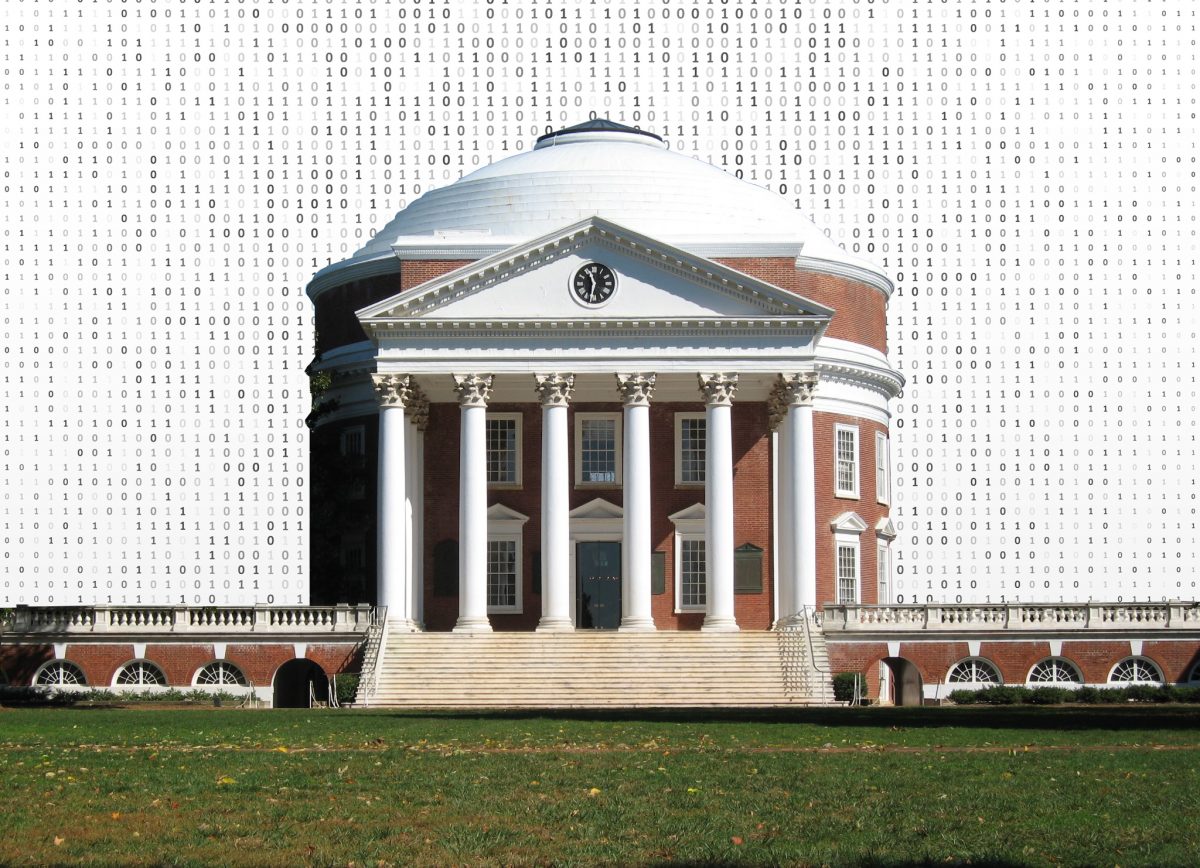University of Virginia and intelligence community leaders celebrated the official launch of the National Security Data and Policy Institute on November 21. The institute is a collaboration between the Office of the Director of National Intelligence and UVA.
“My belief is that this institute also fits squarely within UVA’s longstanding condition of public service,” said university President Jim Ryan at the event, which was held at the Rotunda. “Even if Thomas Jefferson would never have imagined artificial intelligence or a field called cyber security, I believe he would have been thrilled to learn that the university he founded would play a role in protecting the freedom and safety of American citizens from new kinds of threats and challenges.”
Funded through a two-year, $20 million contract, NSDPI is the realization of a joint effort by Director of National Intelligence Avril Haines and Virginia Sen. Mark Warner, chair of the Senate Intelligence Committee.
“We all recognize the growing importance of data in our world, and it is nowhere more important than in the intelligence community,” said Haines. “Data and our ability to manage it properly is fundamental to our work and to maintaining an advantage in an increasingly complex and interconnected global security environment, and increasingly important to our competitive edge in that environment.”
While figures vary, whatsthebigdata.com estimates that more than 320 million terabytes of data are generated every day as of 2024. For comparison, Edge Delta estimates that watching YouTube videos uploaded at 1080p generates approximately 2.5 to 4.1 gigabytes per hour—or 0.0025 to 0.0041 terabytes.
By bringing together public, private, and academic research into data analysis, the institute will employ developing technologies like artificial intelligence to identify potential national security threats. Professor Philip Potter will lead the NSDPI, drawing on his experience as founding director of the Batten School’s National Security Policy Center.
“It really takes that policy acumen and knowledge,” says Potter. Beyond the initial tasks of determining how to quantify metrics and prioritize known challenges within the intelligence community, the institute is, at its core, about building predictive models. “Our policy folks are often really good at identifying the right questions. Our data science folks are really good at knowing how to predict patterns. Bringing those two things together presents really exciting opportunities.”
A major advocate in the creation of the NSDPI, Warner emphasized both the potential for the institute to advance American intelligence-gathering capabilities and the importance of protecting the independence of the intelligence community amid the transition of power.
“The value of the intelligence community must be that it speaks truth to power, and it must speak truth to power with independence, without fear of retribution, because that’s the only way policy makers can come to a judgment that makes sense,” says Warner. “I worry at times, some of that independence may be threatened. As long as I have a seat in that room, I’m going to do everything I can to maintain that independence.”
Come January, president-elect Donald Trump has said he will appoint Tulsi Gabbard as the new Director of National Intelligence. Despite the change in leadership, Potter does not anticipate any major impacts on the NSDPI.
“Transitions are a normal part of democratic governments, and they always involve change,” says Potter. “We’re going to put our heads down. We’re going to do important work that is moving things forward for the nation and for the university, and that’ll be our process through every part of the democratic cycle.”
